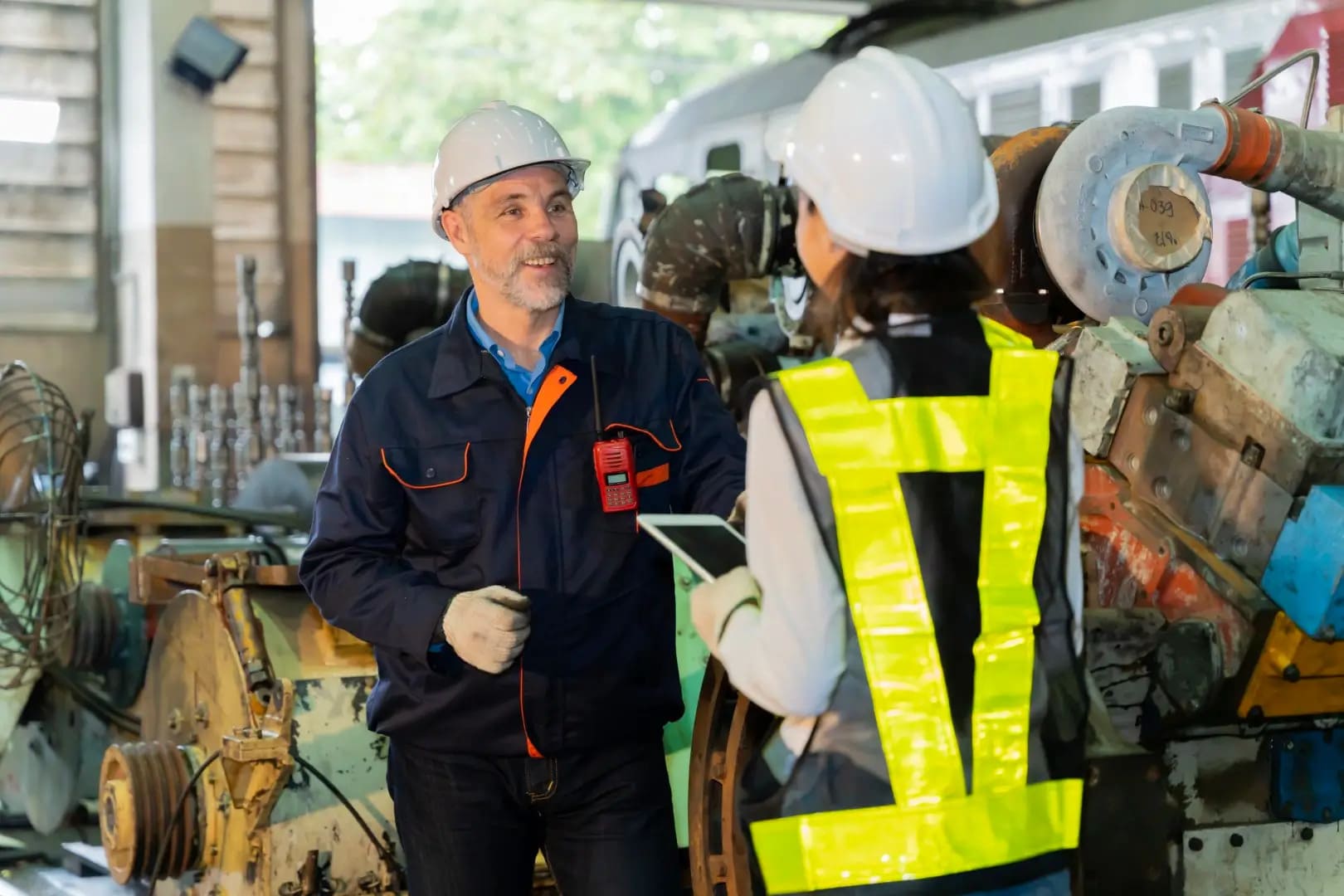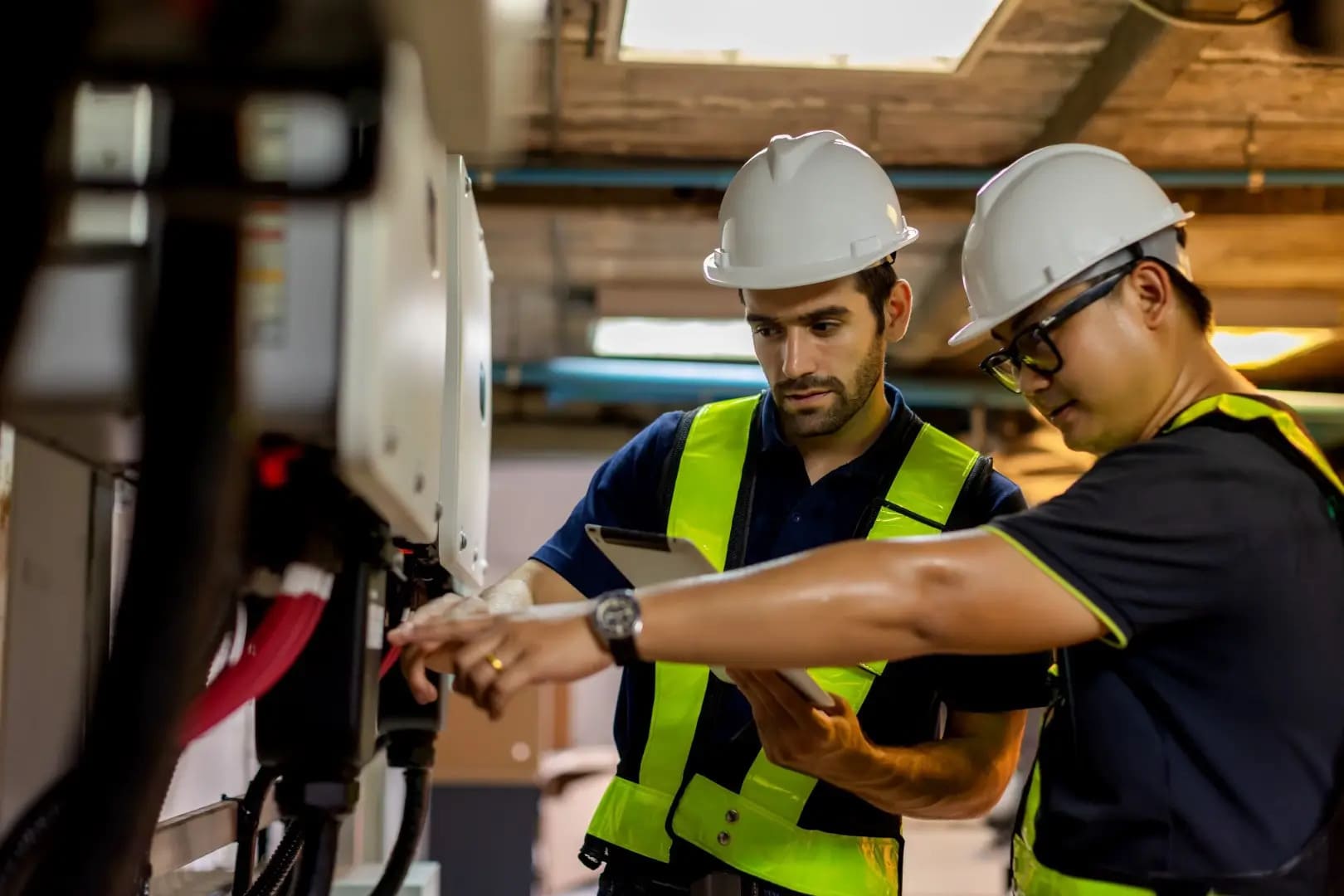Collaboration is essential in the construction and renovation industry, where multiple trades must work together to ensure project success. Among these trades, the role of electrical workers is particularly critical, as their work intersects with various aspects of a building's infrastructure. Effective collaboration between electrical workers and other trades, such as plumbing, carpentry, and HVAC, ensures that projects run smoothly, on time, and within budget. This blog explores why collaboration is vital for efficient, safe, and successful construction projects.
Challenges of Electrical Workers in Trade Collaboration
Electrical workers are critical in construction projects, often working alongside other trades such as plumbing, carpentry, and HVAC. While collaboration among these trades is essential for a smooth project, it comes with unique challenges for electrical workers. Issues such as scheduling conflicts, overlapping tasks, and varying safety standards can make it difficult for electricians to complete their work efficiently. Understanding the challenges of electrical workers in trade collaboration is key to finding solutions that improve teamwork and project outcomes.
Scheduling Conflicts and Delays
One of the primary challenges electrical workers face in trade collaboration is scheduling conflicts. Electrical work is often dependent on other trades completing certain tasks first, such as installing plumbing or HVAC systems. When delays occur in these trades, electrical workers may be forced to wait, leading to inefficient use of time and resources. Additionally, electricians must work within a narrow time frame during specific construction phases, and any shift in the schedule can disrupt their workflow.
Overlapping Workspaces
Another challenge for electrical workers is the issue of overlapping workspaces. Construction sites can be crowded, and multiple trades may need to work in the same area simultaneously. This overcrowding can create logistical problems, as electrical workers often need to run wiring or install fixtures in areas where other trades are also operating. The lack of space can lead to delays and potential conflicts as each trade tries to complete its tasks without hindering the progress of others.
Differing Safety Standards
Safety is a top priority in construction, but each trade may follow its specific safety protocols. For electrical workers, working with live wires, high-voltage systems, and other electrical hazards can make their tasks particularly dangerous. Collaborating with other trades that may not fully understand the risks associated with electrical work can lead to safety challenges. Ensuring that all trades are aligned on safety protocols and understand the unique hazards of electrical work is crucial to minimizing accidents and injuries.
Miscommunication and Coordination
Miscommunication between trades can cause significant disruptions for electrical workers. If plans, changes, or deadlines are not communicated, electrical workers may arrive on-site to find that conditions are not ready for them to begin work. Additionally, miscommunication about the scope of work can lead to errors that require rework, wasting time and resources. Ensuring that all trades have access to the same project information and maintain open lines of communication is critical for smooth collaboration.
Integration of Complex Systems
Modern construction projects often involve integrating complex systems like electrical, plumbing, HVAC, and smart technology. Electrical workers are frequently responsible for connecting these systems, but a lack of coordination among trades can lead to issues with system integration. For example, if plumbing or HVAC components are not installed in the correct location, it can disrupt the electrical work, leading to delays or the need for rework. Coordination is critical to ensuring that all systems are installed and integrated seamlessly.
Addressing the Challenges of Electrical Workers
Electrical workers face numerous challenges in trade collaboration, from scheduling conflicts and overlapping workspaces to safety concerns and miscommunication. Overcoming these challenges requires clear communication, proper planning, and a commitment to safety and coordination among all trades. By addressing these issues, electrical workers can collaborate more effectively with other trades, ensuring that construction projects are completed on time and to the highest quality standards.
Fostering Collaboration Among Electrical Workers
Fostering collaboration among electrical workers and other trades is crucial to the success of any construction or renovation project. Each trade brings expertise, and working together effectively ensures that projects are completed safely, efficiently, and with minimal disruptions. For electrical workers, whose work is integral to the overall functionality of a building, close coordination with other trades can prevent delays, reduce mistakes, and lead to higher-quality outcomes. Here are the key areas where collaboration between electrical workers and other trades can make a significant difference:
Coordinating Project Timelines
One of the most important aspects of collaboration is coordinating timelines between electrical workers and other trades. Electrical installations often need to be completed at specific project stages, such as before walls are closed or after plumbing work. Effective communication ensures that all trades know when electrical work must happen, preventing delays and bottlenecks in the project timeline. By fostering an open line of communication, electrical workers can avoid scheduling conflicts and keep the project moving forward smoothly.
Ensuring Safety on the Job Site
Safety is a top priority on any job site, and trade collaboration plays a significant role in maintaining a safe working environment. Electrical work often involves working with live wires, high voltage, and other hazards that can pose risks to everyone on site. Close coordination between electrical workers and other trades ensures that safety protocols are followed, hazards are communicated, and risks are minimized. When electrical workers and other trades share safety information and practices, the team can work together to prevent accidents and ensure a safer job site for everyone involved.
Integrating Systems Seamlessly
Different systems—electrical, plumbing, HVAC, and smart technology—must work together seamlessly in modern construction projects. Electrical workers ensure these systems are properly integrated to meet the building's overall design and functionality goals. By collaborating with other trades, electrical workers can ensure that wiring is in the right place for appliances, HVAC systems, and other mechanical installations, ensuring a smooth and efficient system integration. This collaboration helps avoid costly rework and improves the overall quality of the project.
Solving Problems and Troubleshooting
Every construction project is unique, and challenges often require quick problem-solving and teamwork. When electrical workers collaborate closely with other trades, they can address issues like misaligned wiring, incompatible components, or space constraints more efficiently. By working together, tradespeople can troubleshoot problems as they occur and find solutions that keep the project on track. Effective collaboration in problem-solving saves time and helps prevent costly mistakes that could delay project completion.
Enhancing Communication and Teamwork
Strong communication and teamwork are the foundations of any successful project. Electrical workers who actively collaborate with other trades create an environment where questions are answered quickly, issues are resolved faster, and tasks are completed with fewer errors. Regular meetings, shared plans, and open dialogue allow all trades to stay informed about the project's progress, ensuring everyone is aligned and working towards the same goal. Fostering teamwork among all trades helps create a more efficient, cohesive workflow and improves the overall project outcome.
The Importance of Collaboration for Electrical Workers
Collaboration is essential for electrical workers to perform their tasks effectively and safely within the broader scope of construction projects. By coordinating timelines, ensuring safety, integrating systems, solving problems, and enhancing communication, electrical workers can work seamlessly with other trades to achieve successful project outcomes. This collaborative approach helps deliver high-quality work and ensures the entire construction process runs smoothly and efficiently, benefiting everyone involved.

Improving Electrical Workers' Trade Relations
Effective collaboration between electrical workers and other trades is essential for any successful construction project. Whether it's working with plumbers, carpenters, or HVAC technicians, smooth coordination ensures that timelines are met, errors are reduced, and the overall quality of the project is enhanced. Improving the trade relations of electrical workers can lead to better communication, increased safety, and more efficient workflows on job sites. Here are the five strategies for fostering stronger trade relations and how they benefit the project:
1. Open and Consistent Communication
One of the most important aspects of improving trade relations is establishing open and consistent communication between electrical workers and other trades. Clear communication prevents misunderstandings and ensures all parties are aligned on the project's progress and requirements. Regular meetings, clear documentation, and project management tools can help all trades stay informed and avoid potential conflicts. When electrical workers communicate effectively with other trades, it leads to fewer delays and smoother project completion.
2. Collaborative Project Planning
Collaborative planning is critical for any successful construction project. Electrical workers must coordinate with other trades to ensure their tasks are integrated seamlessly into the project timeline. Electrical workers can prevent bottlenecks and avoid overlapping tasks by participating in early planning meetings and discussing each trade's needs and scheduling requirements. This proactive approach ensures that all trades have enough time and space to complete their work without interfering with each other, leading to a more efficient and well-organized project.
3. Understanding the Needs of Other Trades
Understanding other trades' unique challenges and requirements is a key component of improving trade relations. Electrical workers benefit from learning how their work intersects with plumbing, HVAC, and carpentry, allowing them to anticipate potential issues and plan accordingly. When electrical workers know the specific needs of other trades, they can better accommodate their tasks and minimize disruptions. This mutual understanding fosters respect and leads to more effective workplace teamwork.
4. Problem-Solving and Conflict Resolution
In any collaborative environment, conflicts and challenges are bound to arise. Electrical workers prioritizing problem-solving and conflict resolution are better equipped to maintain favorable trade relations. Rather than allowing small issues to escalate, electrical workers can address challenges by working with other trades to find mutually beneficial solutions. Approaching conflicts with professionalism and focusing on solutions helps maintain a positive working environment and keeps the project on track.
5. Prioritizing Safety Across Trades
Safety is a top priority on any construction site, and improving trade relations often involves creating a unified approach to safety protocols. Electrical workers can collaborate with other trades to ensure that safety standards are followed consistently across the job site. By holding joint safety meetings, sharing safety information, and ensuring that all trades are aware of potential hazards, electrical workers contribute to a safer working environment for everyone. When safety is prioritized through collaboration, the risk of accidents is reduced, benefiting all trades involved.
Keeping Strong Trade Relations for Electrical Workers
Strong trade relations are essential for electrical workers to perform their tasks efficiently and safely in collaboration with other trades. By focusing on communication, collaborative planning, mutual understanding, problem-solving, and safety, electrical workers can foster positive relationships that lead to better project outcomes. These efforts improve the workflow and create a more cohesive and successful construction environment for all trades involved.
Collaborative Culture of Electrical Workers and Other Trades
Creating a collaborative culture between electrical workers and other trades is essential for the success of any construction project. Effective communication, as a cornerstone of this culture, enables proper planning and a shared focus on safety and coordination. With this in place, trades can work together seamlessly to deliver high-quality results. Building a strong collaborative environment improves efficiency and ensures every trade can complete tasks without unnecessary delays or complications.
For more insights and expert tips, visit our GC Electrical Service Inc. blog and explore the latest construction and electrical services trends.


